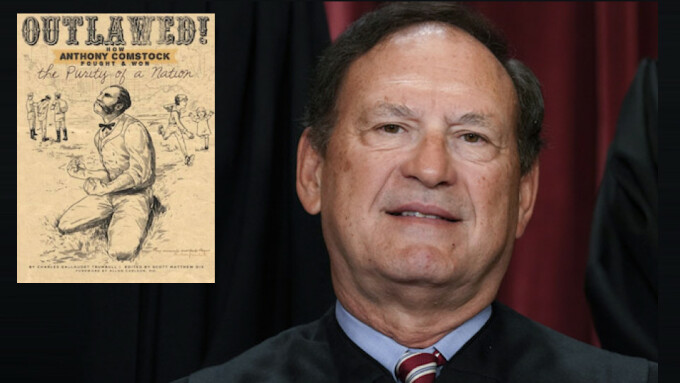WASHINGTON — Several national publications reported this week on widespread concern among Free Speech advocates after U.S. Supreme Court Justices Samuel Alito and Clarence Thomas repeatedly invoked, during a hearing, the Comstock Act, an infamous law that was the cornerstone of U.S. censorship of sexual material from the 1870s until the 1970s.
With headlines like “Alito and Thomas kept bringing up Comstock. That scared abortion rights supporters” (Washington Post), “Fears grow over Comstock Act, Justices Thomas, Alito” (The Hill) and “Two Supreme Court Justices Favor Zombie Law From 1873 to Ban Abortion — Justices Alito and Thomas just lent credibility to the Christian right’s attempt to revive the Comstock Act” (The National Review), the articles highlight worries about the dormant statute, which has never been formally repealed even though it has rarely been enforced in the modern era.
Alito and Thomas repeatedly invoked the Comstock Act on Tuesday during arguments about access to the abortion drug mifepristone, “pressing lawyers about whether the 1873 federal law should apply to abortion drugs sent through the mail today,” the Washington Post reported. “Alito rejected the Biden administration’s argument that the law is obsolete — it has not been applied in nearly a century — with the conservative justice insisting that Food and Drug Administration officials should have accounted for the law when expanding access to mifepristone by mail in 2021.”
University of Michigan law professor Leah Litman told the Post, “When you hear the justices asking repeated questions, it’s definitely something that they are interested in,” and called it “outlandish” to propose that the Victorian-era Comstock Act should be enforced in 2024.
Alito, however, contended that the 151-year-old law is “a prominent provision; it’s not some obscure subsection of a complicated, obscure law,” The Hill noted.
The Comstock Act, The Hill explained, “banned the mailing of materials that were deemed ‘obscene, lewd, [or] lascivious,’ which included things such as contraception, abortion drugs and pornography,” and legal experts like Litman “are concerned either Thomas or Alito — or both — could write a Comstock-focused opinion arguing the law is viable. Such an opinion could embolden a future GOP administration and anti-abortion groups to continue pressing forward with plans to enforce the Comstock Act in ways it hasn’t been enforced before.”
The National Review offered context on why the Comstock Act is being revived by the two of the Court’s most staunch conservative ideologues.
“Anti-abortion groups in recent years have repeatedly raised the issue of whether the Comstock Act implicitly outlaws the mailing of abortion medication in its blanket ban on the mailing of ‘obscene’ materials,” the National Review explained, adding that the U.S.’s most notorious 19th-century morality law “is named for an anti-vice crusader who, in 1915, in the middle of a trial based on the law, died and was mocked over his anti-obscenity ‘crusade’ on the front page of The New York Times.”






